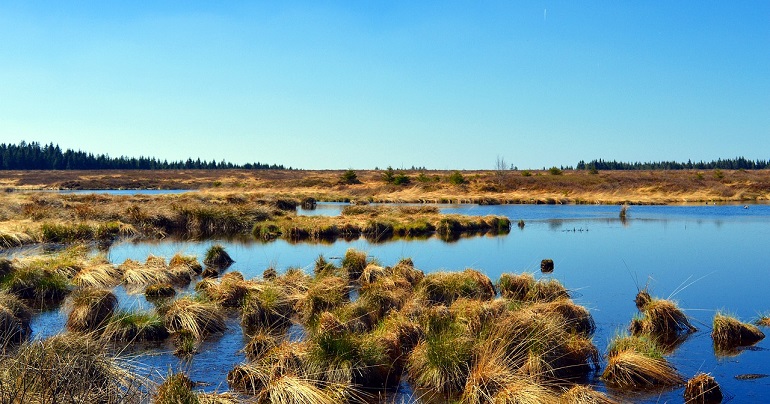How “Scotland’s Rainforest” is disappearing and the Green fight to save it

Peat has an image problem – bog standard, bog off, bog roll – lowland raised bogs are dismissed as barren, irrelevant and dull and yet just 15cm of peat contains more carbon per hectare than a tropical forest. It’s also so rare as to be positively exotic. 3% of the planet’s land surface is peat and 20% of that is on our doorstep, here in the UK and Ireland. It’s a rare habitat; rich in biodiversity and central to carbon sequestration. And yet, despite this, we continue to use and extract it in staggering amounts.
95% of the UK’s peatland has been degraded or destroyed and the remainder stores the same amount of carbon as the UK’s total annual greenhouse gas emissions. According to the Scottish Government, they “contribute to making human life both possible and worth living.”
Despite this, there are currently three live planning applications in the South of Scotland to extract hundreds of thousands of cubic metres of this precious carbon store and rare habitat. Dumfries & Galloway Greens and South Lanarkshire Greens have joined forces to fight the plans. In a few short weeks we’ve enlisted objections from people across the region as well as a contributor to the UN’s International Panel on Climate Change, Bug Life, the RSPB, Butterfly Conservation Scotland, Plantlife and the Scottish Wild Land Group.
Both councils have declared climate emergencies and are developing climate action plans. Their planning policies talk about the need to protect and restore peat and its importance. The Scottish Government has issued guidance about the need for restoration plans and carbon calculators and yet the extension applications continue to be submitted. The latest, at Nutberry Moss near Annan, was lodged in mid-May.
With the clock ticking on existing licences, and the writing on the wall for this harmful industry, landowners like ICL and Everiss are attempting to wring as much out of these lucrative sites as possible. All three are seeking 10-year extensions on their licences. In two sites this will see extraction continue for four years beyond the 2030 deadline the UK and Scottish Governments have set for ending peat extraction entirely.
The Scottish Government is planning to spend £250m on rewetting and restoring peatlands across the country, yet there is no operational or legislative ban to prevent the extension of existing extraction licences. It takes a year to create just a 1mm layer of peat and 1,000 years before a bog starts functioning again. So it’s up to communities and conservationists to keep fighting extension plans and hold their governments to account for the decisions they make that contribute to climate change.
As well as enlisting supporters and garnering scores of objections in just a few weeks, we’ve also recorded a series of podcasts to discuss the issues around our continuing use of peat, its importance as a habitat and just how hard it is to restore peatland. Contributors include soil scientist, Janet Moxley, conservationist Paul Kirkland and peatland restoration expert Deborah Land.
Of course, there would be no extraction if there wasn’t a demand for peat. The peat extracted on these sites is used in horticulture, despite a clear message from the Climate Change Committee that sales of horticultural peat should be banned by 2023. Successive governments have weakened their stance on peat and deadlines for a ban come and go.
Although the UK now imports 68% of its peat (mostly from Ireland and Eastern Europe), at all three of the sites we’re campaigning against supply to the horticultural industry. With garden centres and nurseries re-opening after lockdown, ask yours if they sell peat-free plants and bagged compost. If not, why not?
The Scottish Greens are calling for an end to peat extraction licence extensions, a just transition for the workforce and investment in developing peat-free growing media. Above all, we’re asking all levels of government to join the dots between their rhetoric on climate change and meaningful climate action.
PS. We hope you enjoyed this article. Bright Green has got big plans for the future to publish many more articles like this. You can help make that happen. Please donate to Bright Green now.



Leave a Reply